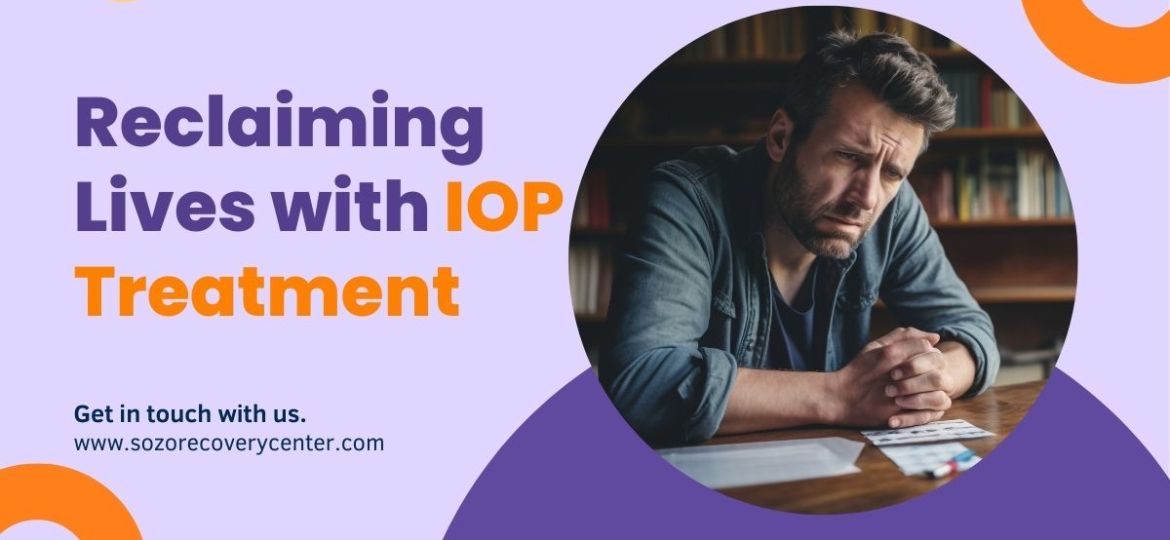
Addiction treatment and rehabilitation include a wide variety of therapy structures and program facilities for people battling with substance abuse. IOP orIntensive Outpatient Program is one such healthcare structure that is a vital link in the field of addiction and mental health treatment between traditional outpatient therapy and intensive residential care. IOPs provide a combination of structured therapy, peer support, and flexibility to meet the needs of people who want all-encompassing care without sacrificing their daily routines. It offers specialized care to people who are battling dual diagnoses, mental health issues, or substance abuse. It is critical to comprehend the operation of IOPs and their potential benefits as communities struggle with the intricacies of substance abuse and mental health disorders.
What Is An Intensive Outpatient Program?
A structured treatment option called an Intensive Outpatient Program (IOP) enables patients to receive full therapeutic services while still living at home and carrying out their regular activities. IOPs, as opposed to residential or inpatient programs, offer scheduling flexibility, which makes them appropriate for people who need intensive support but do not need round-the-clock supervision. In an IOP program, you will probably spend two to three hours a day, three to five days a week, receiving both group and individual therapy.
What Are The Components Of the Intensive Outpatient Program?
The IOP is generally regarded as a higher category of care and tends to include the following:
- Outpatient Therapy: The majority of the people have either attended or are familiar with outpatient therapy. Most individuals attend once weekly, and sessions are typically held in a therapist’s office.
- Partial Hospitalization: Frequently mistaken for an IOP, a partial hospitalization program consists of five days a week, five hours a day of therapy, either individual or group.
- Inpatient Residential: A patient is usually admitted to an inpatient residential treatment center for a certain period of time. They stay at the facility and receive the same therapies as individuals in an IOP program.
Certain therapies and treatments come under the programs of intensive outpatient.
Individual Counseling: To address personal issues, create coping mechanisms, and establish treatment objectives, participants meet one-on-one with a licensed therapist.
Group Therapy: In a secure and encouraging setting, group sessions offer chances for experience sharing, skill development, and peer support.
Psychoeducation: Workshops that are educational in nature address subjects like addiction, mental health conditions, preventing relapses, and constructive coping techniques.
Medication Management: Psychiatric evaluation and medication management may be a part of the program for people with co-occurring mental health disorders.
Family Involvement: Family therapy sessions assist with addressing family dynamics, enhancing communication, and creating a healing environment.
Admissions Procedure and Evaluation
Enrolling in an Intensive Outpatient Program usually starts with a preliminary evaluation by a certified healthcare professional. The results of this evaluation aid in determining the patient’s level of symptom severity, interaction willingness, and treatment requirements. Medical assessments can also be carried out to evaluate physical health conditions and find any underlying medical conditions that might affect treatment. A customized treatment plan is created accordingly based on the results of the assessment. This plan specifies the objectives of the program, the interventions that will be used, and the expected time frame.
Intensive Outpatient Program Structure and Duration
To understand how IOP or intensive outpatient treatment, it is essential to be aware of the program structure and duration to understand how suitable it is for an individual battling substance abuse.
Frequency of Sessions:
Individualized outpatient programs usually require three to four hours of sessions several times a week. The frequency and length of participation are subject to change under program requirements and the individual needs of a patient.
Determining the Duration of Your Intensive Outpatient ProgramTreatment Length:
An IOP may last for some time, based on things like how well treatment is going, how severe the symptoms are, and individual circumstances. While some people may only take part in IOPs for a few weeks, others might need the same for several months.
IOPs provide an extensive and adaptable approach to treatment for individuals with dual diagnoses, addiction, or mental health issues. It offers patients the tools they require to overcome obstacles, build coping mechanisms, and make a long-term recovery by offering structured therapy, peer support, and educational materials. If you or someone you care about needs help with substance abuse or mental health issues, you might want to look into the advantages of an intensive outpatient program as a way to start the healing and transformation process.

